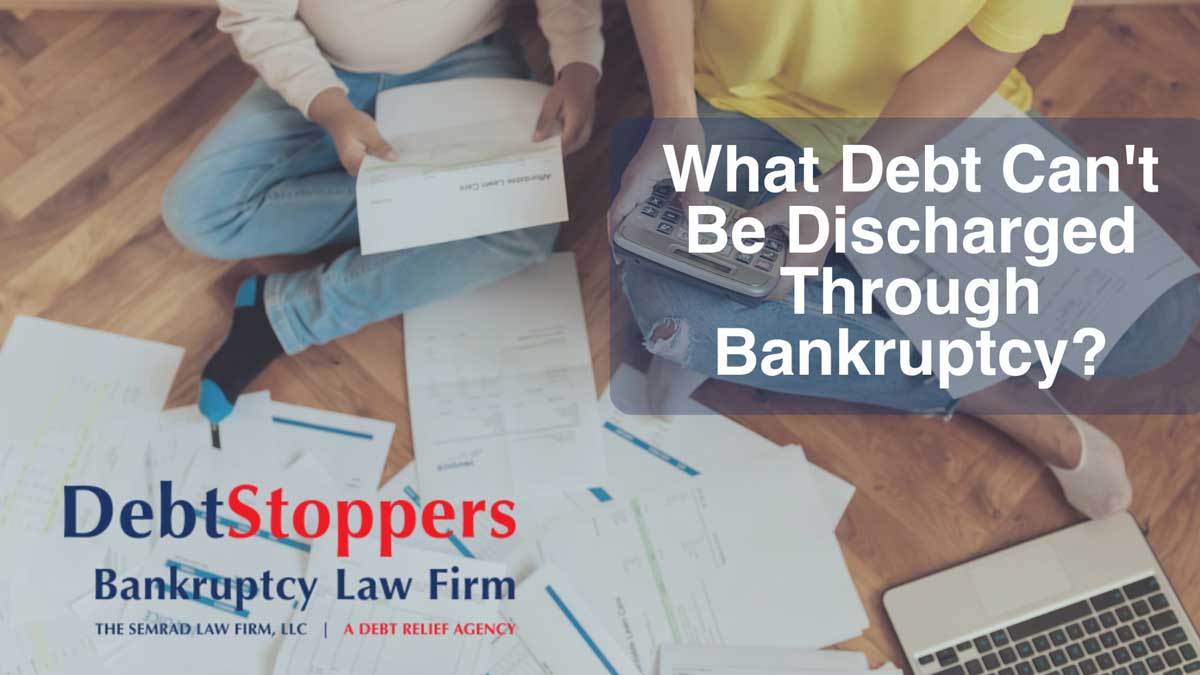
When life gives you lemons, sometimes you just have to file for bankruptcy and hope your back taxes can’t find you in New Jersey. But what happens when the IRS comes knocking on your door after you’ve already hit rock bottom financially? Let’s break down the impact of bankruptcy on back taxes in the Garden State and see if there’s a light at the end of this very long, dark tunnel.
Understanding Bankruptcy Laws in New Jersey
Who knew bankruptcy laws could be so exciting? Well, maybe not exciting, but definitely important to understand if you ever find yourself in a financial pickle in the Garden State. Let’s break it down in a way that even your Great Aunt Mildred could comprehend (no offense to Aunt Mildred, of course).
First things first, there are different types of bankruptcy, each with its own set of rules and requirements. In New Jersey, the most common types are Chapter 7 and Chapter 13. Chapter 7 is like hitting the reset button on your finances. It allows you to wipe the slate clean of most of your debts, but you may have to give up some of your assets in return. Chapter 13, on the other hand, is more like a payment plan to repay your debts over time. Think of it as the slow and steady wins the race approach.
Now, let’s talk exemptions. These are like little lifelines that protect certain assets from being taken and sold off to pay your creditors. In New Jersey, you can exempt things like your primary residence, car, and personal belongings up to a certain dollar amount. It’s like playing a game of Monopoly, but instead of hotels and houses, you’re trying to protect your stuff from going bankrupt.
But wait, there’s more! Bankruptcy laws also have something called the means test. This is like a financial check-up to determine if you qualify for Chapter 7 or Chapter 13. It takes into account your income, expenses, and household size to see if you pass the test. It’s like trying to fit a square peg into a round hole—but with numbers. So, before you dive headfirst into the world of bankruptcy in New Jersey, make sure you know the rules of the game. It may not be a walk in the park, but with a little humor and some expert guidance, you’ll come out on the other side with a fresh start and a new outlook on your financial future.
Types of Bankruptcy and Their Effects on Back Taxes
There are several types of bankruptcy that can have different effects on back taxes. Let’s break it down for you:
- Chapter 7 Bankruptcy: This is like the Marie Kondo of bankruptcies – it helps you declutter your debts. With Chapter 7, your back taxes may be discharged, meaning you won’t have to pay them back. It’s like saying goodbye to those tax bills and hello to financial freedom!
- Chapter 13 Bankruptcy: Think of Chapter 13 as the budgeting guru of bankruptcies. With this type, you’ll set up a repayment plan to gradually pay off your debts, including back taxes. It’s like going on a financial diet – you’ll still have to pay your taxes, but in smaller, more manageable bites.
- Chapter 11 Bankruptcy: This is the VIP treatment of bankruptcies – it’s usually reserved for businesses. With Chapter 11, you’ll reorganize your debts and come up with a plan to pay them off. It’s like hitting the reset button on your finances and starting fresh.
So, whether you’re looking to declutter your debts, create a budget plan, or reorganize your finances, there’s a bankruptcy option out there for you. Just remember to consider the effects it may have on your back taxes before diving in!
The Process of Discharging Tax Debts through Bankruptcy
So you found yourself drowning in tax debts, huh? Don’t worry, we’ve got the scoop on how you can discharge those pesky debts through bankruptcy. But remember, bankruptcy is no quick fix – it’s a process. So buckle up and get ready for the ride!
First things first, you’ll need to determine which type of bankruptcy is right for you. There’s Chapter 7, Chapter 11, and Chapter 13. Each has its own set of rules and regulations, so make sure you do your research before diving in.
Once you’ve chosen the right bankruptcy chapter, it’s time to start the paperwork. This includes filling out forms, gathering financial documents, and meeting with your lawyer. It’s like putting together a puzzle – only instead of a beautiful picture, you get debt relief at the end!
After all the paperwork is filed and your case is reviewed by the court, it’s time for the magic to happen. If all goes well, your tax debts will be discharged, and you can finally breathe a sigh of relief. Just remember, bankruptcy is not a get-out-of-jail-free card – it comes with its own set of consequences. But hey, at least you can say goodbye to those tax debts, right?
Potential Limitations and Exceptions for Tax Debt Discharge in New Jersey
When it comes to tax debt discharge in New Jersey, there are definitely some limitations and exceptions to keep in mind. While getting out of paying taxes sounds like a dream come true, there are a few things to consider before breaking out the champagne:
- **Certain types of tax debt may not be eligible for discharge, such as:
- Fraudulent tax returns
- Intentional tax evasion
- Trust fund taxes that were withheld but not remitted to the government
- **Even if your tax debt is dischargeable, there are specific criteria that must be met, such as:
- Having filed a tax return for the debt in question
- The tax debt must be at least three years old
- You must not have committed any tax fraud or evasion
- Expertise: Professionals have the knowledge and experience to guide you through the complex process of bankruptcy and tax negotiations.
- Legal Protection: By enlisting the help of professionals, you can ensure that you are protected from any legal pitfalls that may arise.
- Peace of Mind: Knowing that you have a team of experts handling your finances can alleviate the stress and anxiety that often comes with financial troubles.
So, while the idea of wiping the slate clean when it comes to tax debt might be tempting, it’s important to understand the limitations and exceptions that may apply in your particular situation. Don’t let the taxman get the last laugh – make sure you’re informed and prepared to tackle your tax debt with confidence.
Options for Resolving Back Taxes Outside of Bankruptcy
So, you’ve found yourself in a bit of a pickle with back taxes, huh? Don’t worry, you’re not alone. But before you start selling all your belongings to pay off Uncle Sam, let’s explore some options to resolve those pesky back taxes outside of bankruptcy.
First up, we have the good ol’ installment agreement. This is where you negotiate a payment plan with the IRS to gradually chip away at your tax debt. Just think of it as paying off a really expensive pair of shoes, except the shoes are actually the government and they don’t care if you look fabulous.
Next on the list is an offer in compromise. You basically make an offer to settle your tax debt for less than what you owe. It’s like haggling at a flea market, except the stakes are much higher and you don’t get a cool new trinket at the end.
And finally, we have innocent spouse relief. This is for all you unfortunate souls who got tangled up in tax trouble because of your spouse’s shenanigans. It’s like being the bystander to a really bad magic trick – you’re innocent, but you still end up paying the price. But fear not, innocent spouse relief can help you escape unscathed.
Navigating the Complexities of Bankruptcy and Tax Law in New Jersey
Are you feeling lost in a sea of legal jargon and paperwork when it comes to bankruptcy and tax law in New Jersey? Fear not, brave soul, for we are here to help you navigate through these treacherous waters with wit and wisdom!
When it comes to bankruptcy in New Jersey, there are a few key things to keep in mind. First off, be sure to familiarize yourself with the different types of bankruptcy, such as Chapter 7 and Chapter 13. **Knowing your options** is half the battle!
Next, take a deep breath and gather all necessary financial documents. **Organization is key** when it comes to proving your case in bankruptcy court. And remember, when in doubt, don’t be afraid to seek out professional help from a knowledgeable bankruptcy attorney.
As for tax law in the Garden State, things can get a bit tricky. Make sure to stay up-to-date on all tax deadlines and regulations to avoid any nasty surprises from the IRS. And, as always, don’t be afraid to consult with a tax expert if you find yourself in over your head. **No shame in asking for help**!
Seeking Professional Guidance for Handling Bankruptcy and Back Taxes in the State
Are you drowning in a sea of debt that feels as deep as the Grand Canyon? Do you find yourself cringing every time the mailman delivers another reminder of your overdue taxes? Fear not, for help is at hand!
When it comes to handling bankruptcy and back taxes in the state, seeking professional guidance is the way to go. With experts by your side, you can navigate the murky waters of financial distress with ease. Here are some reasons why professional help is essential:
So why go it alone when you can have a team of professionals in your corner? Take the first step towards financial freedom by seeking expert guidance today!
FAQs
Will filing for bankruptcy in New Jersey wipe out all of my back taxes?
Sure, bankruptcy may seem like a magic eraser for your financial problems, but unfortunately, it doesn’t always make those pesky back taxes disappear entirely. The impact of bankruptcy on back taxes in New Jersey can vary depending on your specific situation, so it’s best to consult with a tax professional before making any assumptions.
How long do I have to wait before I can discharge my back taxes through bankruptcy in New Jersey?
Patience is a virtue, especially when it comes to discharging back taxes through bankruptcy in New Jersey. Typically, you’ll need to wait a minimum of three years from the due date of the tax return in question before you can wipe out those tax debts. So, sit tight and start counting down the days – it’ll be worth it in the end!
What is the difference between Chapter 7 and Chapter 13 bankruptcy when it comes to back taxes in New Jersey?
Ah, the age-old question – Chapter 7 or Chapter 13? When it comes to dealing with back taxes in New Jersey, the answer can make a world of difference. Chapter 7 bankruptcy may allow you to discharge your tax debts completely, while Chapter 13 can give you the option to create a repayment plan for those pesky back taxes. So, choose wisely, grasshopper – your financial future depends on it!
Can I discharge all of my back taxes through bankruptcy in New Jersey?
Well, well, well, if only it were that easy! Unfortunately, not all back taxes can be discharged through bankruptcy in New Jersey. Certain types of taxes, like payroll taxes or taxes that were assessed within the past three years, may not be eligible for discharge. But hey, look on the bright side – at least you can say you tried, right?
What should I do if I have back taxes and I’m considering filing for bankruptcy in New Jersey?
When in doubt, always consult a professional! Seriously, don’t try to navigate the murky waters of back taxes and bankruptcy on your own – it’s a recipe for disaster. Reach out to a tax professional or bankruptcy attorney in New Jersey who can help you understand your options and guide you through the process. Trust me, your future self will thank you!
Until Next Time, Tax Troubles!
As we wrap up this informative journey into the world of bankruptcy and back taxes in New Jersey, we hope you’ve gained some valuable insights (and maybe a few chuckles along the way). Remember, when it comes to tax troubles, bankruptcy can be a helpful tool in your arsenal. So don’t let those back taxes haunt you – face them head on, and who knows, maybe you’ll come out on top like a tax-fighting superhero! Until next time, may your refunds be plentiful and your audits be few. Stay financially fabulous, folks!










